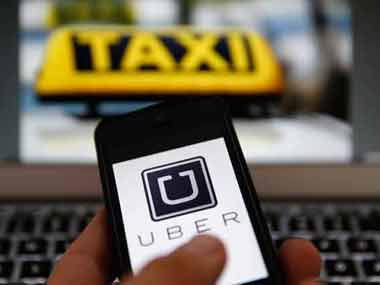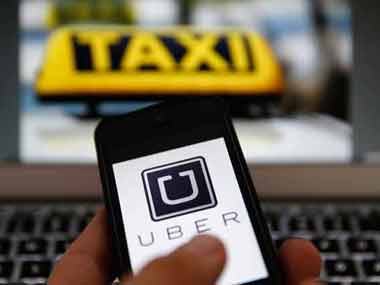A smart city – or any city which wants that title – should emphasise public transport over private. Unfortunately, the Indian context has favoured private transport (cars, mobikes) over buses and metros (so far), and real estate interests have ensured that people are forced out of towns to distant suburbs, which necessitates the ownership of a car or two-wheeler merely as a means for daily commute.[caption id=“attachment_2275790” align=“alignleft” width=“380”]  Representational image. Reuters[/caption] One hopes that the prime minister’s smart cities mission gives primacy to public transport and taxes private vehicles heavily for the privilege of ownership and use. If smart cities don’t do that, we will get dumb results – traffic jams, pollution, and a general decline in public well-being. However, technological developments and entrepreneurship are lending a helping hand to make existing cities smarter. They are changing the economics of private vehicle ownership in the metros. The likes of Ola, Uber, Meru, Tabcab and other such app- and phone-based taxi services (also called radio taxis) are tilting the balance against cars. Consider the costs and benefits of owning car. #1: You are buying a depreciating asset. This is a cost few buyers take into account while buying a car #2: You have maintenance and related costs: quarterly servicing, accidents and repairs, loan servicing costs (EMIs), parking and annual insurance. #3: Then you have running costs: you have to pay for the fuel, parking (both at home and where you work), and possibly keeping a driver. Let’s try computing these costs. If you are buying a Rs 5 lakh car with a Rs 4 lakh loan by putting in Rs 1 lakh of your own money, these are your costs of ownership: For a Rs 5 lakh car, the interest payment on a Rs 4 lakh, five-year loan will be around Rs 1,33,000 at 12 percent interest. That’s an average of Rs 2,216 per month. In five years, your car would have depreciated from Rs 5 lakh to Rs 2.5 lakh (which could be its resale value). This means depreciation would have cost your another Rs 4,166 per month. Add an average monthly cost of another Rs 1,500 for insurance and servicing costs, and your monthly costs of car ownership are already Rs 7,882. Now add fuel and parking charges. Assume you are doing 20 km a day for 25 days a month, and the car averages 12 km in city driving conditions. At current petrol prices of Rs 70 a litre (roughly the mid-point petrol price between cheap Delhi and costly Mumbai), you will pay Rs 2,916 for petrol, and possibly another Rs 500 parking (I am being very conservative here). So where are we? You monthly cost of owning a car and driving it yourself is around Rs 7,882, plus Rs 2,912 (for fuel) and Rs 500 for parking. That’s a cost of Rs 11,298 per month. If you hire a driver, that’s another Rs 12,000 a month. Now consider the prospect of using a taxi – the Ubers, Merus and Olas of the world. Uber charges Rs 10-13 per km, Ola around 13-16 per km, and Meru around Rs 20 per km (I am oversimplifying here in order to make comparisons, for there are some complications like minimum fares that Ola and Meru charge that I am not taking into account. Also, their higher rates may be due to a user’s ability to book them in advance, and lower surge pricing - higher fares if demand for taxis soars at any point of time. Ola and Meru rates are lower for their new minicabs, which may be comparable to Uber’s basic rates). For 20 km a day (500 km a month for 25 days), Uber will cost you anywhere in the range of Rs 5,000-6,500 per month (assuming no surge pricing; a Ola Mini or Meru Rs 1,000-2,000 more. But any which way you use a call taxi, your monthly costs will not exceed Rs 7,000-8,000 for the distances mentioned. Compare this with your ownership cost of over Rs 11,000 a month. Costs and comparisons will vary depending on distances travelled, but the logic may then actually worsen for car ownership if the distance travelled is more, since depreciation is faster, petrol costs higher, and drivers may also be needed to find the requisite parking. This does not mean people should stop buying cars, but the reason for buying them has to be related to status, convenience, and other things, not cost-benefit. Over time, the success of radio taxis will take more cars off the road. There is a net social benefit for taking cars off the road, and radio taxis may be close to achieving that in one area at least. Clearly, few people calculate the real cost of car ownership. Time they did.
One of the side benefits of expanding the radio taxi business is that they may ultimately succeed in taking more private cars off the road. The economics is now moving against private car ownership.
Advertisement
End of Article
Written by R Jagannathan
R Jagannathan is the Editor-in-Chief of Firstpost. see more


)

)
)
)
)
)
)
)
)



